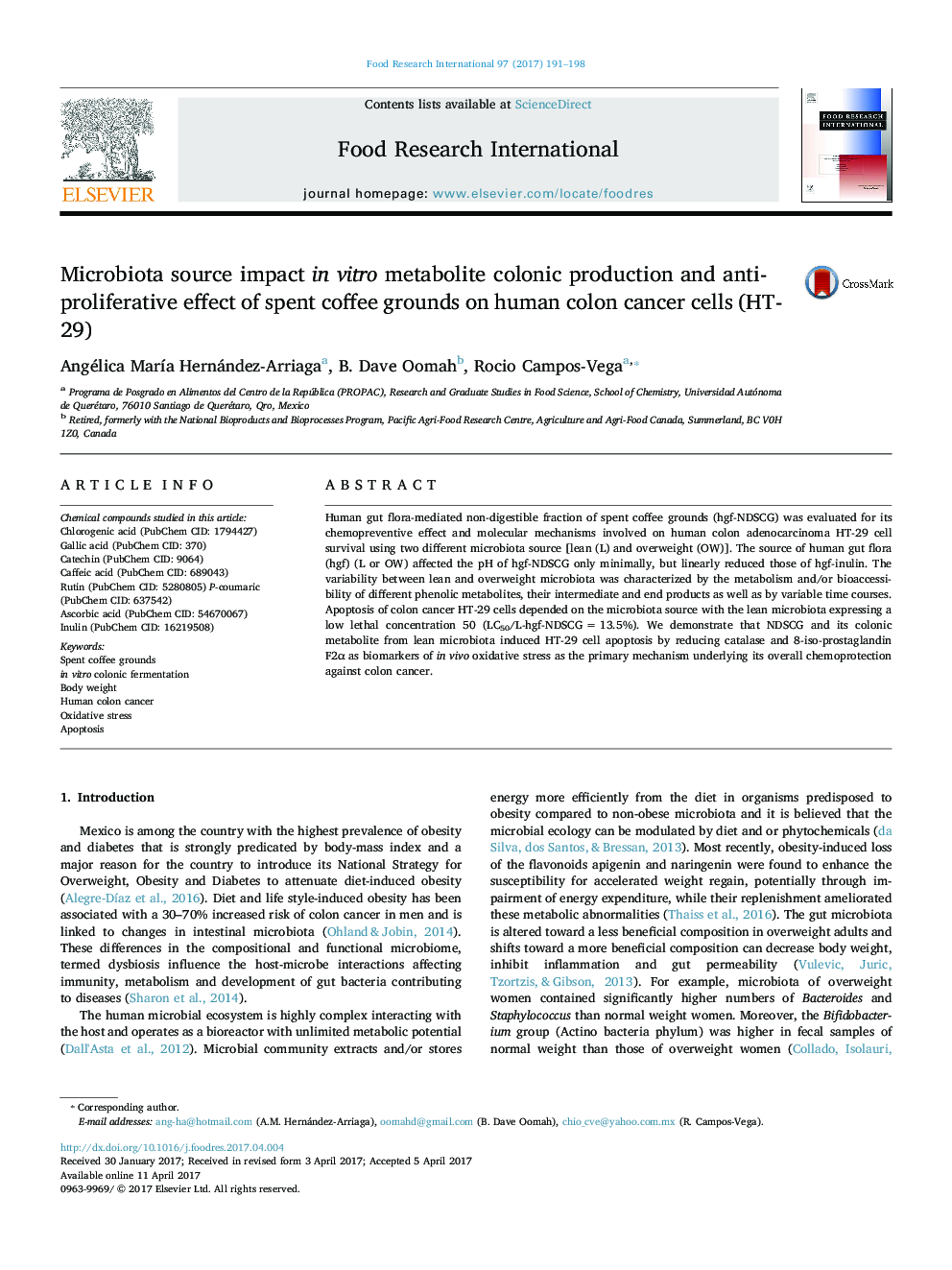| Article ID | Journal | Published Year | Pages | File Type |
|---|---|---|---|---|
| 5768223 | Food Research International | 2017 | 8 Pages |
â¢Colonic spent coffee metabolism differed between lean and overweight microbiota.â¢Overweight/hgf-NDSCG displayed cytostatic and cytotoxic effects on HT-29.â¢Lean/hgf-NDSCG induced HT-29 cell apoptosis by reducing oxidative stress.â¢Additional studies are needed to demonstrate cause/effect relationships.
Human gut flora-mediated non-digestible fraction of spent coffee grounds (hgf-NDSCG) was evaluated for its chemopreventive effect and molecular mechanisms involved on human colon adenocarcinoma HT-29 cell survival using two different microbiota source [lean (L) and overweight (OW)]. The source of human gut flora (hgf) (L or OW) affected the pH of hgf-NDSCG only minimally, but linearly reduced those of hgf-inulin. The variability between lean and overweight microbiota was characterized by the metabolism and/or bioaccessibility of different phenolic metabolites, their intermediate and end products as well as by variable time courses. Apoptosis of colon cancer HT-29 cells depended on the microbiota source with the lean microbiota expressing a low lethal concentration 50 (LC50/L-hgf-NDSCG = 13.5%). We demonstrate that NDSCG and its colonic metabolite from lean microbiota induced HT-29 cell apoptosis by reducing catalase and 8-iso-prostaglandin F2α as biomarkers of in vivo oxidative stress as the primary mechanism underlying its overall chemoprotection against colon cancer.
Graphical abstractDownload high-res image (168KB)Download full-size image
